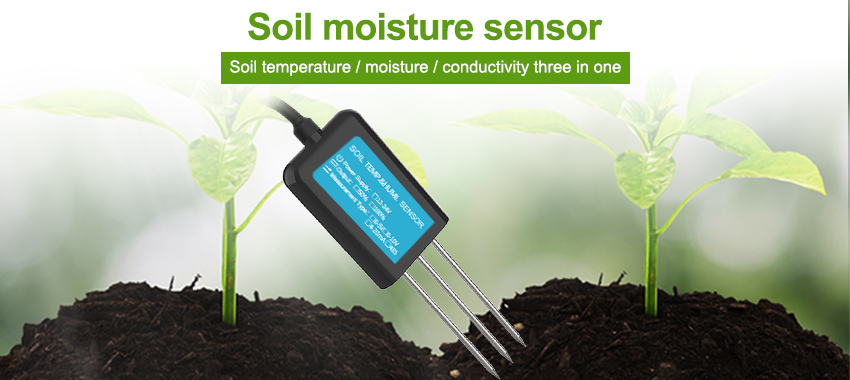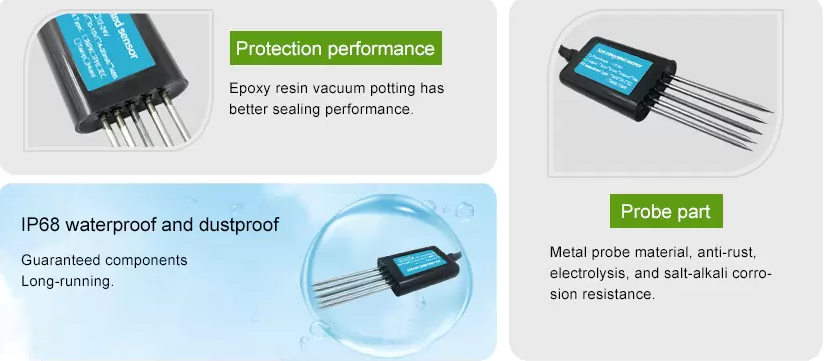best soil moisture sensor

Soil moisture sensors are devices that measure the amount of water in the soil. These sensors are important tools for farmers, gardeners, and landscapers because they provide accurate information about when to water plants, how much water to use, and when to stop watering. There are many different types of soil moisture sensors available, each with its own advantages and disadvantages.
In this essay, we will examine some of soil moisture sensor best on the market and compare their features to help you choose the one that is right for your needs.
Choosing the best soil moisture sensor can be a challenging task, as there are many factors to consider, including the type of soil, the application, and the accuracy required.
Choose the best soil moisture sensor is the key factor:

- Type of soil: The type of soil you are working with will influence the type of sensor you choose. Some sensors work better in certain soil types, such as clay or sandy soils, while others may be less effective. It’s important to choose a sensor that is suitable for your specific soil type.
- Sensor accuracy: The accuracy of the sensor is crucial, especially if you’re using it for agricultural or environmental monitoring purposes. Look for sensors that offer high accuracy and precision, with a low margin of error.
- Installation and maintenance: Some sensors require more complex installation and maintenance procedures than others. Consider how easy the sensor is to install, calibrate, and maintain, and whether you have the necessary skills and resources to do so.
- Sensor output: Consider what type of output the sensor provides, such as analog or digital, and whether it is compatible with your monitoring system or data logger.
- Price: Soil moisture sensors vary in price, with some being more expensive than others. Consider your budget and choose a sensor that offers good value for money, with a balance between accuracy and cost.